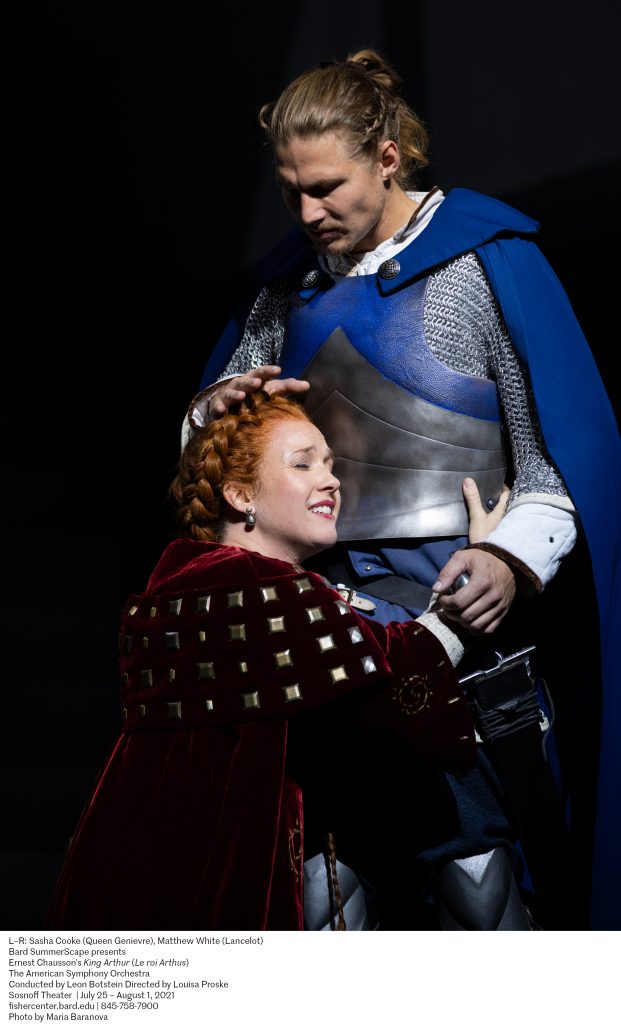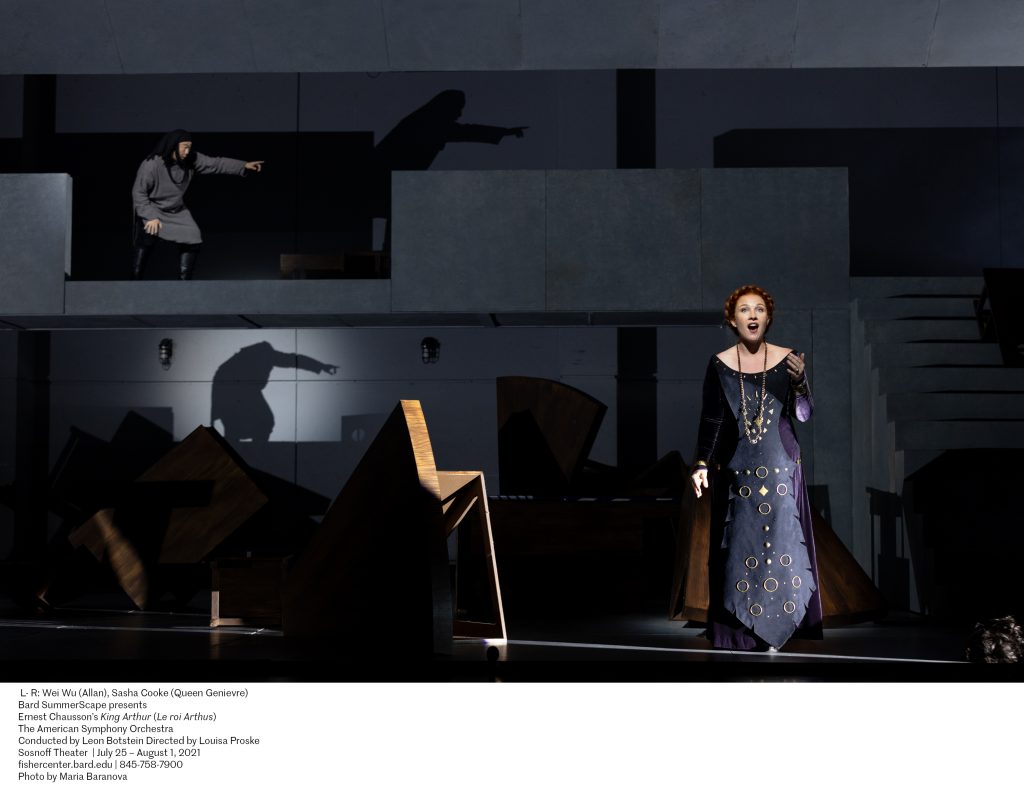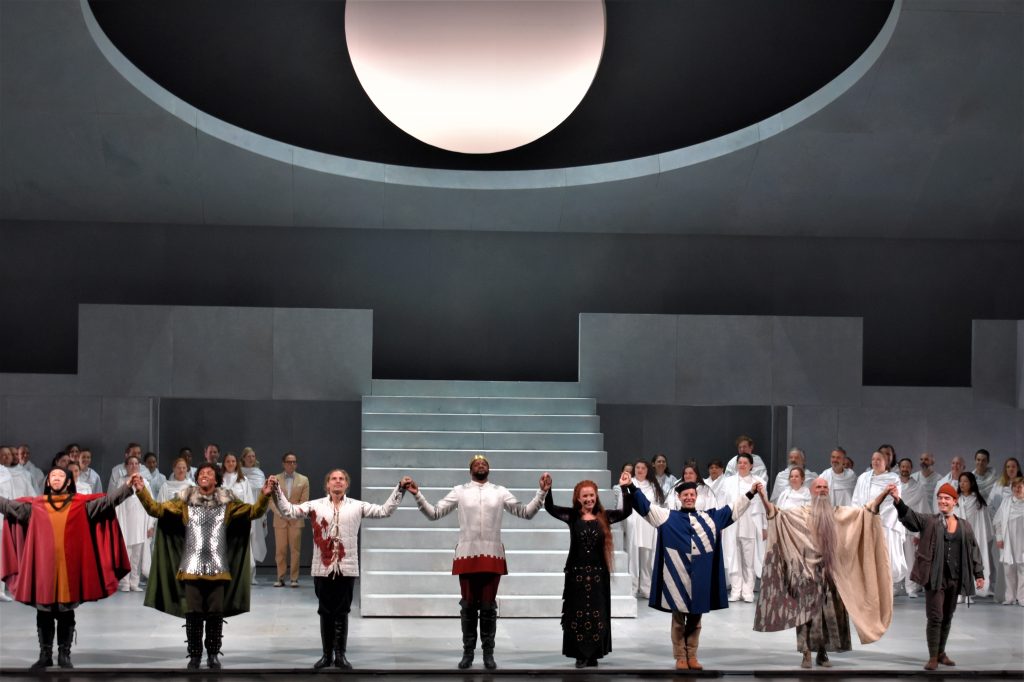
by Kevin T McEneaney
Bard’s Summerscape 2021 includes a forgotten masterpiece: Ernest Chausson’s Le Roi Arthus (1903), based upon the greatest of all medieval authors, Chrétien de Troyes, that master of deep irony. This year the festival centers upon Nadia Boulanger. Chausson was a close friend of Nadia. This is the first fully-staged production in the USA.
The opera opens with Welsh King Arthur having defeated the Anglo-Saxons. (Remember them? The Beowulf epic argues holocaust because the Welsh speak the language of Cain and are descended from Cain. Adolph Hitler admired that epic so much, he attempted to have the manuscript stolen.)
When the opera was first performed in Paris, it was universally panned (much like the reviews of Bizet’s Carmen), the excuse being it was but a lackluster imitation of Wagner, which was a gross misinterpretation. The real problem was the portrait of Lancelot who devolves into a coward seduced by Germanic totalitarian ideals of fealty to kingship.

The spectacle of Lancelot’s publicly embarrassing death strongly contrasts with the private, heroic death of his beloved Guinevere. The strong feminism of Guinevere was too advanced at the time, especially when coupled with the groveling, brainwashed self-suicide of Lancelot. The minor musical influence of Wagner was, like most of the brilliant poetic dialogue (libretto written by Chausson), satiric, often with double entendre. The whole opera swims in an aura of muted satire, just like common conversation, to this day in Paris, where a compliment might more likely be a ricochet barb.
In the traditional Celtic triangle, the Queen loves young Lancelot rather than the aged King Arthur, which sets up the incompatibility of a society devoted to both totalitarian rule and libertarian free love. Since one cannot have both at the same time, the result is tragedy, and in this case a self-imposed tragedy wrought by idealistic, fascistic propaganda. Sound relevant to today?

Dr. Leon Botstein had directed a performance of this opera in Europe, recording the opera with the BBC Orchestra in 2014. This recording was well-received, yet some singers were seriously criticized, something that cannot be said of this current production with baritone Norman Garrett booming gravity and attempting to behave as Aristotle’s benevolent despot and mezzo-soprano Sasha Cooke exuding transcendent passion while the piercing clarity of tenor Matthew White belies his interior diffidence.
In the pit under Botstein’s baton was the American Symphony Orchestra. Horns were excellent in their deft irony and plangent tragedy, yet the violins provided the nuanced earscape portal to the emotional ambiance of characters and plot. The suave musical influence of César Franck drowns the awkward bluster of Wagner.
Despite the award of pagan fame and the pompous absurdity of Christian resurrection to Arthur, one leaves the theater knowing that life would have been better under the rule of King Lancelot and Queen Guinevere because it would be the Queen who would be the true ruler, much like Queen Arete of the Phaeacians in Homer’s Odyssey.

This three-part opera, structured like a Greek tragedy, is thrilling. The magnificent sets by Matt Saunders cast a marvelous omniscient eye over the action and the chic furniture surrealism in the third act offers an ingenious incongruity that conjures disorientated displacement.
Smartly directed with seamless pace by Louisa Proske, this production has two more performances: July 30 at 4 pm and August 1 at 2 pm. Tickets are available at: https://fishercenter.bard.edu/events/king-arthur/

